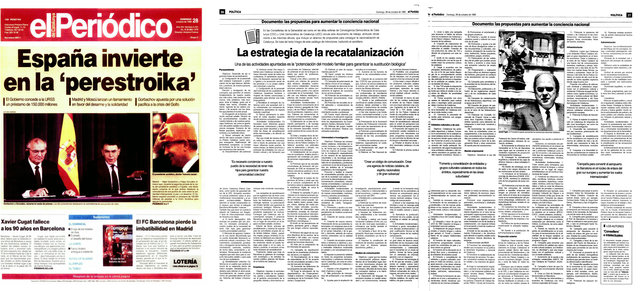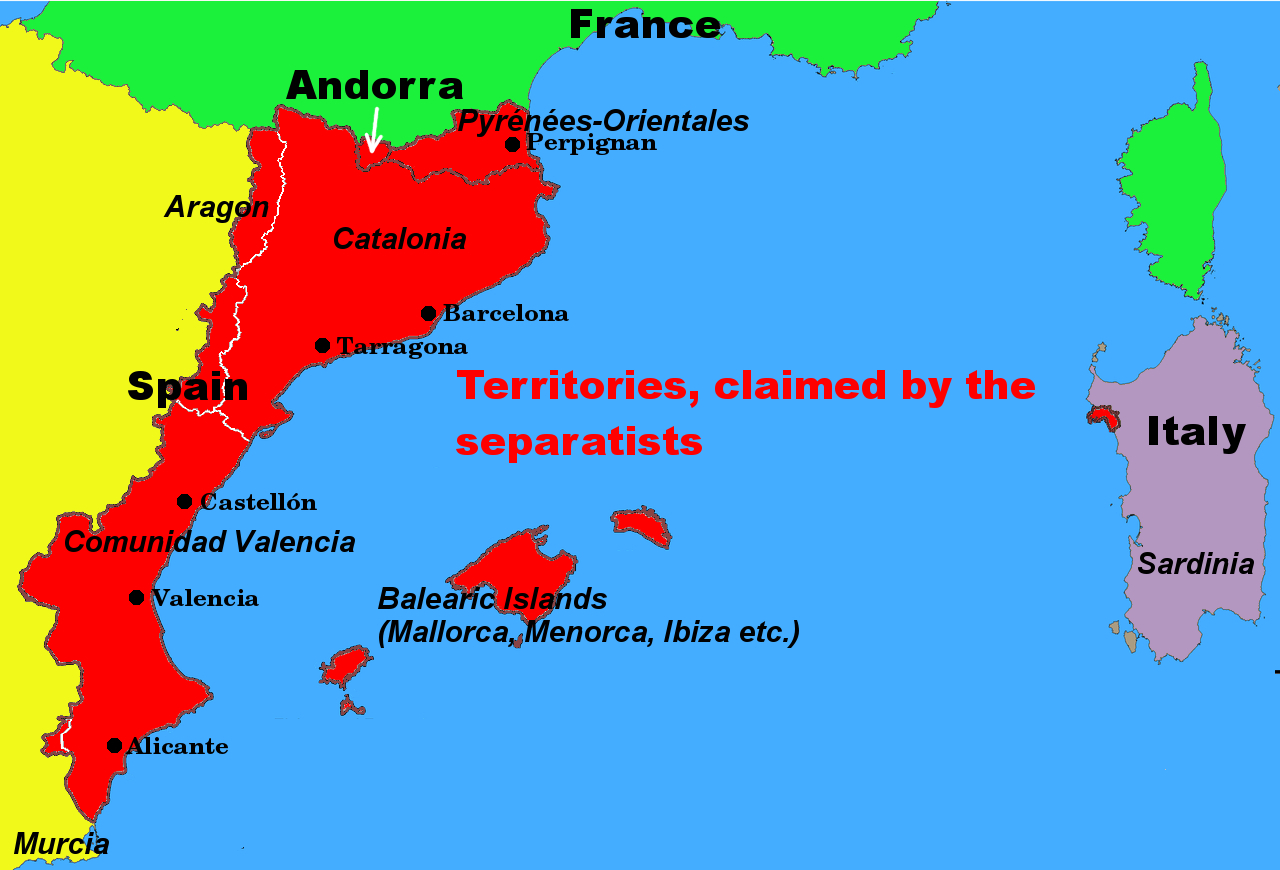Some facts
What distinguishes Catalonia from Scotland?
Febrary 5, 2020
With the brexit now completed, it is clear that a majority of the Scots wants independence from Britain. In Catalonia this is not true of the majority, but it is important to recognise the differences in the desire for independence.
A brief explanation.
The Catalan independence movement with its two main parties, JxCat and ERC, is basically no different politically at all from the two main Spanish parties, PP and PSOE. They all want NATO, EU and neoliberalism. The Spanish constitution was voted positively throughout Spain, including Catalonia, in 1978. Article 2 reads: „The Constitution is based on the indissoluble unity of the Spanish nation, the common and indivisible homeland of all Spaniards, and recognises and guarantees the right to autonomy of the nationalities and regions of which it is composed, as well as solidarity among them all“. The Spanish Constitution states that in areas with regional languages Spanish and the respective regional language have equal rights. The latter is not respected by the Catalan government; instead, there is a language dictatorship similar to that under Franco. Only that now Spanish is suppressed instead of Catalan. Spanish and Catalan governments make no distinction except their infatuation with this conflict, which distracts from their corruption and the country's problems. Divide et impera - Divide and Rule!Footnotes
Scotland has been part of Great Britain by royal agreement since 1707. There is no British constitution approved by voters. A defining difference in politics is the question of membership of the EU. Scottish independence supporters do not impose the regional language Scottish Gaelic on the English-speaking majority of Scotland. Unlike the Catalan separatists, they behave quite democratically.
The fact that the Catalans have no right to self-determination is clear not only from the declarations of the EU, but also from those of the UN[1]. And from the circumstances under which a right of self-determination is granted, too.
The right of self-determination is essentially bound to certain conditions, for example whether it is directed against colonial power relations. This is neither the case in Catalonia nor in Scotland. However, these conditions include how minorities are treated in the event of independence. There would be nothing to fear in Scotland; in Catalonia this treatment of the Spanish-speaking majority is already disastrous and against any constitution that could be described as democratic.
[1] https://www.lavanguardia.com/politica/20151030/54438498099/ban-ki-moon-catalunya-derecho-autodeterminacion.html
| | | | Click here to subscribe or cancel your subscription |
Myths and deceptions of Catalan nationalism

Here you'll find the translation
The strategy of recatalanization
 1980 the Spanish journal "El Periodico" published a secret document about the strategy of the Catalan government. It shows in a frightening way the actual spiritual world of the separatist leaders.
1980 the Spanish journal "El Periodico" published a secret document about the strategy of the Catalan government. It shows in a frightening way the actual spiritual world of the separatist leaders.Now it is available in english translation.
Pancatalanism
the separatist's imperial claim
 The Catalan government exports the conflict into communities with Catalan population, supporting all efforts of the separatists including financial means to destroy Spain.
The Catalan government exports the conflict into communities with Catalan population, supporting all efforts of the separatists including financial means to destroy Spain. An important tool is the establishment of a language dictatorship that is not afraid to use the same means as Franco.
Separatist indoctrination

Click here to read the study
Language imposition and democracy

An essay in 6 parts on the potentially violent effect of language imposition containing contributions from South Africa, Catalonia, Ukraine and France.
go to part 1
Publications
 The title says: "Catalonia, a conflict is exported. Insights of a migrant"
The title says: "Catalonia, a conflict is exported. Insights of a migrant"Sorry, up to now, this book is only available in German. However, drop us a line, if you are interested to learn more Contact.
